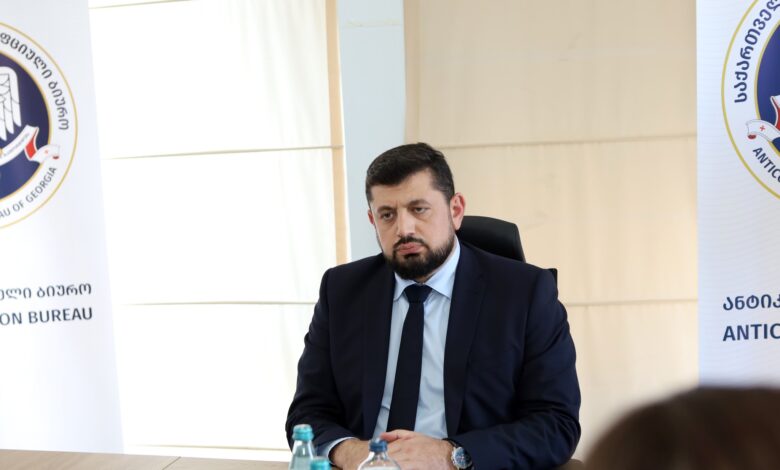
Anti-Corruption Bureau Expands Crackdown to Media, Activists
The Anti-Corruption Bureau, a public body, has targeted several media organizations and individual activists with inspections, following earlier actions against dozens of civil society groups under various repressive laws.
At least six media organizations – 64, Realpolitika, Governance Monitoring Center (GMC), iFact, Mtis Ambebi, and The Georgian Charter of Journalistic Ethics – have received inspection notices under the amended Law on Grants, which requires government approval for foreign donors prior to disbursing grants to local organizations.
Like the CSOs before, the media groups, too, have been requested to provide records of their activities dating back to April 16, a day before the amendments to the Grants Law took effect. The group includes outlets working mainly on investigative and educational pieces and videos, as well as blogs.
Mtis Ambebi (Mountain Stories) editor Gela Mtivlishvili said that despite the inspections, the outlet will not halt its work and will continue “producing investigative films on government violations of law, corruption, environmental destruction, and violations of fundamental human rights.”
The Georgian Charter of Journalistic Ethics, a non-state, self-regulatory body of journalists, stated that it received formal notification from the Bureau regarding proceedings to assess whether the organization’s grant-related activities comply with Georgian law and demanded extensive documentation across multiple categories. The watchdog assessed the Bureau’s actions as “the first practical step, under the new legislation, to dismantle a highly reputable organization built through the efforts of many outstanding journalists,” vowing to “defend its legal rights by all possible legal means.”
At least three activists also reported the inspections from the Bureau.
Two civic activists from Gori, Teona Pankvelashvili and Teona Bzishvili, said the Court of Appeals notified them that the Bureau is seeking two years of their bank records after a Gori City Court judge rejected the initial request for full access.
In a video address, Pankvelashvili stressed that both she and Bzishvili are independent activists with no affiliation to any organized movement.
Another activist, Tika Parkaia, wrote on social media on September 30 that the Bureau requested her bank account records and transaction history. Parkaia also said that she is not affiliated with any movement and acts independently in “fighting the Russian regime.” She did not specify under which law the Bureau cited its request.
The Bureau could presumably invoke political party law to allege that the activists are political actors engaged in campaign activities. Under the same law, ahead of the 2024 elections, the Anti-Corruption Bureau declared Transparency International–Georgia, a local corruption watchdog, a “political actor” before reversing the decision at the request of PM Irakli Kobakhidze.
The inspections come after a series of measures against CSOs under different legislation. Earlier, up to 30 organizations said they received requests under the Law on Grants, which they dismissed as unlawful, noting they had not signed new grant agreements or amended previous ones since the changes took effect.
In June, eight CSOs reported receiving court orders for inspections under the Law on Combating Corruption, the Law on Political Associations, and the Law on Grants. The Bureau demanded broad information on their work and sensitive beneficiary data.
In August, seven CSOs said they were instructed to register under the GD government’s version of the Foreign Agents Registration Act (FARA), which they refused, arguing the law did not apply to them.
Authorities also froze the bank accounts of seven CSOs in the so-called “face masks case,” accusing them of financing protests and protesters who allegedly committed “violent acts” against police during the 2024 pro-EU rallies.
The news was updated on October 3, 4:20 p.m., to include the statement of the Georgian Charter of Journalistic Ethics.
Also Read:
- 01/09/2025 – Prosecutors Summon NGO Heads to Testify in ‘Sabotage’ Probe
- 22/08/2025 – Inspected CSOs Say FARA Doesn’t Apply to Them as They Refuse to Register
- 18/07/2025 – UN Committee Calls on Georgia to Suspend Court Order Seeking NGO Beneficiary Data
This post is also available in: ქართული